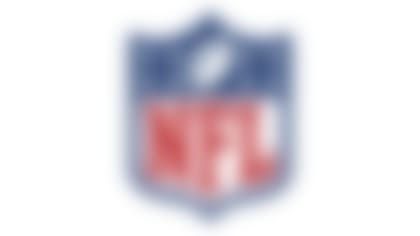WASHINGTON -- Accusing the NFL players' union of "trying to back out" of an August 2011 agreement to start checking for human growth hormone, a congressman worried aloud Wednesday that the league will head into next season without a test for the banned drug.
Harrison: Who will make the Hall?
Elliot Harrison sets out to predict which NFL greats will be among the 15 finalists for the Hall of Fame's Class of 2013. **More ...**
"Hopefully as we move down the line, players will see how incredibly ridiculous it looks for them not to ... straighten this thing out," said Rep. Elijah Cummings of Maryland, the House Oversight and Government Reform Committee's ranking Democrat. "We're now getting ready to go into a third season, and it does not look very good."
The panel held a hearing to examine the science behind the testing, and heard from experts that it is reliable.
"No test is perfect ... but there hasn't been a single false positive," U.S. Anti-Doping Agency Chief Science Officer Larry Bowers testified.
While the latest, 10-year labor contract paved the way for HGH testing in professional football once certain parameters were set, the NFL Players Association wants a new study before it will agree to the validity of a test used by Olympic sports and Major League Baseball. The sides haven't been able to agree on a scientist to help resolve that impasse.
HGH is a banned substance that is hard to detect and used by athletes for what are believed to be a variety of benefits, whether real or only perceived -- such as increasing speed or improving vision. Among the health problems connected to HGH are diabetes, cardiac dysfunction and arthritis.
Gbajabiamila: Concussion quandary

Akbar Gbajabiamila gives an insider's account of the tension players face between staying safe and performing well. **More ...**
"They say they need more time ... before doing what they agreed to do. To me, it seems obvious the Players Association is simply running out the clock," Cummings said. "Although they agreed to HGH testing, they are now trying to back out of the contract."
Cummings and committee chairman Darrell Issa, a California Republican, both said additional hearings are expected.
"It is our hope (to) move these parties closer together," Issa said.
"This isn't the players" who are objecting to the test, Issa said after the hearing. "This is lawyers making a statement. Players want to know that the rules are the rules for everybody. ... We're not seeing a vast amount of players stand up. We're seeing a few lawyers stand up on an unfounded technicality."
The NFL and union were not invited to testify at the hearing, but representatives of both attended Wednesday's session.
Asked about Cummings' comments, NFLPA spokesman George Atallah said after the hearing: "I respect his opinion. We have a contract, and the contract says both sides have to agree to protocols to move forward."
Atallah said the union was "absolutely not" trying to back out of the agreement on HGH.
NFL senior vice president Adolpho Birch, who oversees the league's drug program, called the union's insistence on a population study to determine whether current HGH tests are appropriate for NFL players a delay tactic.
"As a league, we need to look at it in terms of competitive integrity, in terms of being consistent with the NFL having a leadership position in the world of performance-enhancing drugs," Birch said. "And frankly, I think this delay in implementing this program has put our leadership position at risk."
Even once scientific issues are resolved, there will be other matters the league and union need to figure out, including who administers the test and what the appeals process will be.
"First, I applaud the NFL and players for taking a bold and decisive position on HGH in their 10-year agreement. Now let's get on with it," one witness, Pro Football Hall of Famer Dick Butkus, told the committee Wednesday. "The HGH testing process is proven to be reliable. It's time to send a clear message that performance-enhancing drugs have no place in sports, especially the NFL."
Copyright 2012 by The Associated Press











